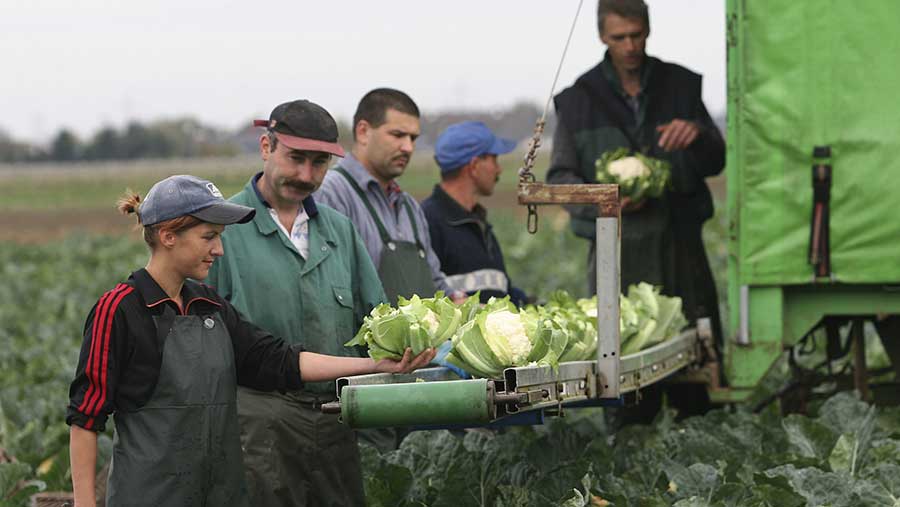‘Living wage’ drives down farmgate prices
 © Thomas Frey / imagebroker/Rex Shutterstock
© Thomas Frey / imagebroker/Rex Shutterstock Retailers are driving down farmgate prices to growers ahead of the government’s introduction of a national living wage.
Due to come into effect from April 2016, the compulsory living wage will initially be set at £7.20/hour for part-time and full-time workers aged 25 and over.
The target is for it to reach more than £9/hour by 2020.
See also: Farm leaders voice concern at impact of living wage
Although six months away, the prospect of the living wage was already driving down farmgate prices, said NFU horticulture board chairman Guy Poskitt.
Introducing a living wage was the “right thing to do” – but somebody would have to pay for it, Mr Poskitt told an NFU council meeting on Tuesday (13 October).
“Retailers are under pressure but there’s only so much you can squeeze out of suppliers – and we are seeing huge impact on prices.
“I’ve never seen such a lack of confidence with retailers asking for significant cuts,” Mr Poskitt told NFU council members at Stoneleigh Park, Warwickshire.
“If we have a living wage, we need a living price. We can’t continually have a downward price pressure and increasing costs. Many horticultural growers can’t do anything about the number of people they employ – you can’t pick strawberries without people.”
Family farms faced bearing the brunt of the living wage, he said.
Farms that did not trade as limited companies would not benefit from a reduction in tax on profits that the government claimed would offset the cost of the living wage, he added.
“Many farms trade as a family or a partnership, rather than a limited company.”
Similarly, many farms would not benefit from a promised reduction in national insurance. Few growers were looking to expand.
Those that were expanding were looking to increase automation and cut the number of employees – but that wasn’t always possible.
